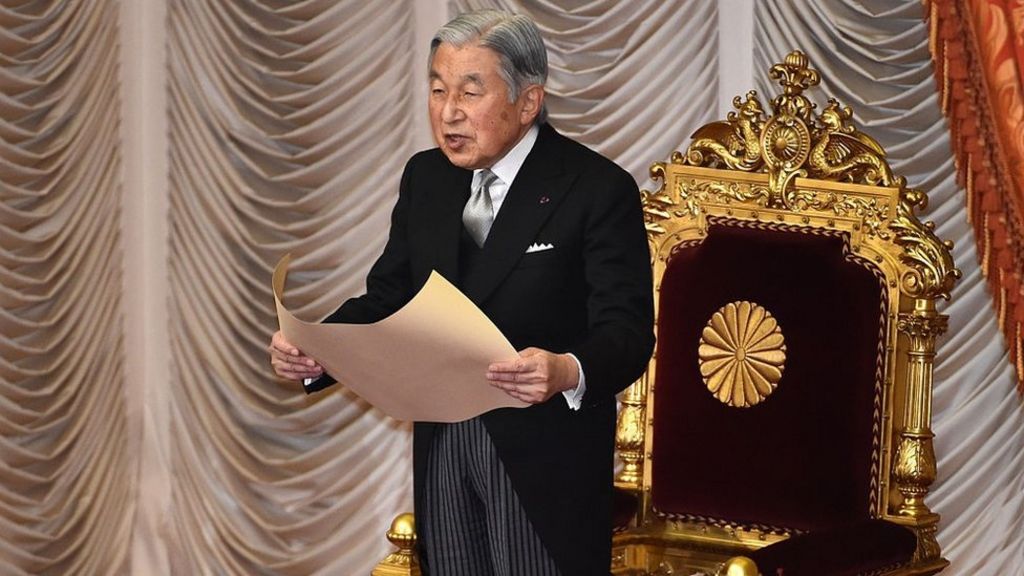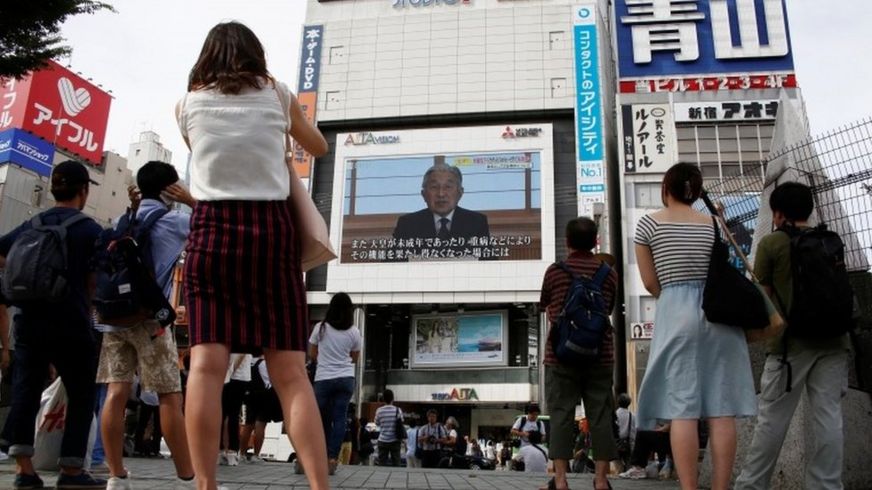Japan's Emperor Akihito has said he fears age and deteriorating health mean he is finding it difficult to continue in his role.
The revered 82-year-old emperor's comments came in his second-ever televised address to the public.
While he did not use the word "abdicate", he strongly indicated that he wishes to hand over his duties.
PM Shinzo Abe said the government would take the remarks "seriously" and discuss what could be done.
Akihito, who has had heart surgery and was treated for prostate cancer, has been on the throne in Japan since the death of his father, Hirohito, in 1989.
In his 10-minute pre-recorded message, he said he had "started to reflect" on his years as as emperor, and contemplate his position in the years to come.
If he were to abdicate, it would be the first time a Japanese emperor has stepped down since Emperor Kokaku in 1817.
The BBC's Rupert Wingfield-Hayes in Tokyo says right wing nationalists who support Mr Abe's government do not want any change to the current law, which insists emperors must serve until they die.
Ever since my accession to the throne, I have carried out the acts of the emperor in matters of state, and at the same time I have spent my days searching for and contemplating on what is the desirable role of the emperor, who is designated to be the symbol of the state by the constitution of Japan. As one who has inherited a long tradition, I have always felt a deep sense of responsibility to protect this tradition.
At the same time, in a nation and in a world which are constantly changing, I have continued to think to this day about how the Japanese imperial family can put its traditions to good use in the present age and be an active and inherent part of society, responding to the expectations of the people."
But he suggested this was not the ideal outcome, saying: "I think it is not possible to continue reducing perpetually the emperor's acts in matters of state and his duties as the symbol of the state."
Akihito's eldest son, 56-year-old Crown Prince Naruhito is first in line to the Chrysanthemum throne, followed by his younger brother Prince Akishino. Women are not allowed to inherit the throne and so Princess Aiko, the daughter of Crown Prince Naruhito, cannot succeed her father.
Immediately after, Mr Abe said he took the fact the emperor had spoken to the people of Japan "seriously".
"Upon reflecting how he handles his official duty and so on, his age and the current situation of how he works, I do respect the heavy responsibility the emperor must be feeling and I believe we need to think hard about what we can do."


No comments:
Post a Comment